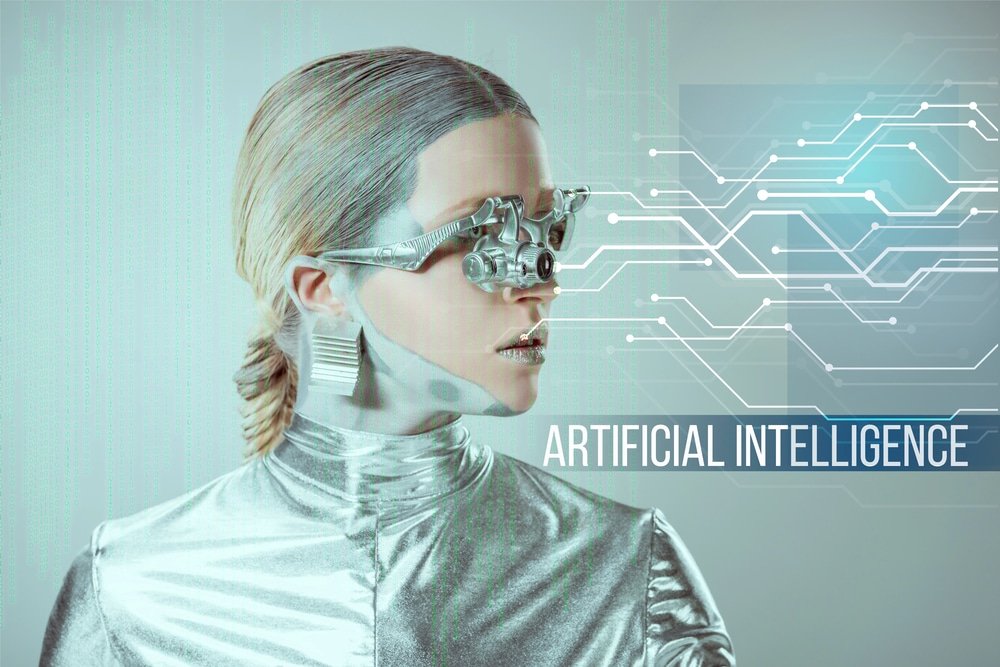AI-Proof Jobs Revealed: Skills That Keep You Employable Forever
The hunt for AI-proof jobs has become more pressing lately. Recent studies show that 52% of U.S. professionals worry about how AI will affect their careers. These fears make sense – as technology reshapes industries rapidly, 3 in 10 American workers think AI might take their jobs. The good news? Some jobs just can’t be automated.
AI struggles to replace jobs that need core human traits – things machines can’t copy like people skills, emotional understanding, and real connections with others. Jobs that need face-to-face interaction are by a lot safer than many desk jobs. The job market keeps changing. The World Economic Forum predicts AI will displace 85 million roles, but create about 97 million new ones, especially when you have fields like data science and AI development.
This piece will show you which careers will stay strong in an AI-driven future and what key skills will keep you employed whatever tech changes come next. We’ll look at everything from healthcare workers to creative artists and reveal what makes their jobs practically impossible to automate.
What Makes a Job AI-Proof
AI-proof jobs exist because artificial intelligence has fundamental limitations. While AI advances rapidly, it still can’t match many human skills that are the foundations of automation-resistant careers.
Tasks AI can’t replicate
Moravec’s Paradox shows us something unexpected: AI finds it hardest to master tasks that come naturally to humans, like walking or reading social cues. Jobs that need intuitive skills such as caregiving or construction are nowhere near as easy to automate as data processing or pattern recognition.
AI performs well with routine, predictable tasks and large data analysis, but doesn’t deal very well with these core human abilities:
- Emotional intelligence – AI can’t truly understand or respond to human emotions with nuance and empathy
- Creativity and original thought – AI generates outputs from training data but lacks genuine artistic expression and breakthroughs
- Adaptability to novel situations – People naturally respond to unexpected scenarios without programming
- Physical dexterity – Fine motor skills and coordination in different environments remain human strengths
AI also stumbles with common sense reasoning and context changes in conversations. Jobs that use these unique human traits stay automation-proof and create the foundation for AI-safe careers.
The role of human judgment and ethics
Human judgment, not algorithms, drives final decisions in business and governance. AI works through what experts call “reckoning”—making predictions based on historical data. Humans work through judgment and practical wisdom that comes from real experiences.
Ethics plays a crucial role as AI systems become part of critical operations. Companies just need experienced AI risk managers who can ensure system security, explainability, and transparency. This creates new roles like:
- AI Safety Officers
- AI Ethicists
- AI Bias Auditors
The industry sees massive growth in roles focused on ethical AI and Reinforcement Learning from Human Feedback (RLHF). Both areas need human judgment. Deep industry knowledge, critical thinking, and ethical judgment aren’t becoming obsolete—they set you apart in competitive jobs.
Why face-to-face interaction matters
Machines can’t replicate the meaningful relationships built through face-to-face communication. A remarkable 91% of respondents stressed team interaction’s importance, while 80% valued wider company interactions. Young professionals under 30 showed even stronger preferences, with 100% prioritizing team interaction.
Face-to-face meetings promote trust between colleagues who can read body language for transparency. This builds credibility and stronger organizational bonds. Direct interactions also:
- Make persuasion work better through eye contact
- Build team spirit faster than emails or remote video
- Solve workplace conflicts through nonverbal cues
- Send clear messages with less confusion
Jobs needing personal connections and emotional understanding stay resistant to automation. These roles rank among the most secure jobs that AI can’t replace.
The landscape of AI-safe jobs reveals that technology’s limits highlight our most valuable human traits—knowing how to understand each other, make ethical decisions, and connect meaningfully in person.

Core Skills That Keep You Employable
Some basic human skills make certain jobs ai-proof. These essential abilities are areas where machines don’t work well compared to humans. This creates lasting job security as technology advances.
Emotional intelligence
The modern workplace values emotional intelligence as a key skill that machines can’t copy. Studies show only 36% of people have this vital skill. People with high emotional intelligence earn about $29,000 more each year than those who don’t.
Five key elements make up emotional intelligence: self-awareness, self-regulation, motivation, empathy, and social skills. People who excel at these can spot their emotions and know how these feelings shape their behavior. They also know how to direct interpersonal relationships well. These people are better at solving conflicts and communicating. This makes them perfect for roles that need human connection.
Dr. Kai-Fu Lee, AI expert and CEO of Sinovation Ventures, puts it well: “AI pushes us toward creating more humanistic service roles that demand genuine empathy… machines don’t have hearts”. This basic AI limitation keeps many jobs safe from ai in healthcare, education, and counseling.
Creativity and innovation
The McKinsey Global Institute found that “AI-generated work is actually just recombining elements from its training data, making it inherently derivative rather than truly creative”. This means jobs needing real creativity stay among the safest jobs that ai can’t replace.
Creative professionals like artists, designers, writers, marketers, and performers know how to break patterns and create original ideas. Their work needs emotional depth and cultural awareness that algorithms can’t match. AI helps these creative workers by handling routine tasks while they focus on big ideas and fresh thinking.
Critical thinking and analysis
Business executives rate critical thinking as their most wanted skill, with 78% highlighting its importance. Yet only 34% of college graduates are ready in this area. This gap creates great chances for people who build this skill.
The World Economic Forum sees critical thinking as a top skill through 2025. As information grows and false news spreads, people who can review data, check arguments, and make good decisions become more valuable. Critical thinking means questioning what we assume, checking what’s true, and seeing different viewpoints—things AI can’t do well.
Physical dexterity and presence
Jobs that need physical presence and hand skills have natural protection from automation. Department of Labor research shows jobs needing steady hands, finger skills, and physical coordination are nowhere near as exposed to AI.
Healthcare workers, skilled trades people, and emergency responders work in changing environments that need quick adaptation. They know how to move through different spaces, handle surprises, and use their knowledge right away. These skills will stay hard to automate for decades.
Leadership and decision-making
Leadership roles stay strong because they need human judgment, emotional intelligence, and ethical thinking. While basic management tasks face automation, jobs needing complex decisions keep growing. Human resources managers should see about 5% growth through 2033.
Good leaders mix strategic vision with people skills that machines can’t copy. They work with incomplete information and balance different people’s needs. A study shows that managers with high emotional intelligence kept 70% of their employees for five years or longer. This shows how much these human skills matter in business.
These core skills will become more valuable as AI grows. You can secure your spot in ai safe jobs throughout your career by building these five abilities. This remains true whatever changes technology brings.

AI-Proof Jobs Revealed: 8 Roles to Watch
The theoretical discussions about automation-resistant careers are interesting, but let’s get into eight specific ai proof jobs that show remarkable staying power in our AI-driven economy.
1. Physical Therapists
Physical therapy stands out as one of the most secure jobs safe from ai with a calculated automation risk of just 0.0%. The profession combines skilled hands-on care with empathy that AI can’t match. The field shows very fast growth with job openings set to climb 14.2% by 2033. The pay is attractive too—professionals earn a median annual wage of $99,710.
2. Teachers and Professors
The academic job market looks promising. Postsecondary teaching positions will add about 156,700 jobs through 2030, growing at 12%. Baby boomers’ retirement will open up more tenure-track positions for educators who blend critical thinking with people skills.
3. Social Workers
Social work shows how human values and technology can work together. These professionals know “the need to treat people with respect, to work with communities, and to help people exploit their voice in different spaces”. All the same, social workers need what experts call “a critical lens”—they should be “excited, curious—and skeptical” as they direct this digital world.
4. UX/UI Designers
UX design is “maybe one of the most human-centric jobs out there”. It needs empathy and deep insight into human behavior. Rather than replacement, AI makes designers’ work easier by handling routine tasks. This moves their focus toward “problem-solving, strategy, research, and vision”. AI and designers work together in this creative field.
5. Firefighters and Emergency Responders
First responders use AI-powered tech for immediate information without losing human judgment. AI helps predict dangerous conditions like flashovers, finds better evacuation routes, and tracks firefighters’ health during operations. These tools boost safety while keeping the human touch in emergency response.
6. Musicians and Performers
AI now creates songs and audio in different styles with minimal input. Yet human creativity still leads the way. One expert puts it well: “AI can generate an infinity of beats—but only you can tell if they slap”. Music creation ties deeply to human experiences and emotions that AI can’t truly capture.
7. AI Engineers and Data Scientists
The people who build AI systems have great job security. The field expects a 32% jump in data science jobs and 26% more computer and information research scientists by 2032. Salaries have shot up to $206,000—that’s $50,000 more than last year.
8. Human Resources Managers
HR roles are changing rather than disappearing. New positions like GenAI expert, Head of HR innovation, and Head of HR AI/product owner keep popping up to support AI implementation. By 2036, AI solutions should create over half a billion net-new human jobs. Many of these will need HR professionals’ human touch.
How These Jobs Use Human Skills
The human advantage in ai proof jobs goes beyond what we do – it’s about how we do it. These human skills create value that AI cannot replicate when we apply them well. This makes these positions jobs safe from ai.
Empathy in healthcare and social work
Healthcare professionals who show empathy help patients achieve better outcomes. Research proves that empathetic care reduces stress, depression, and aggressiveness in cancer patients. Diabetes patients also show better therapeutic results with empathetic care. This vital skill helps professionals understand their patient’s emotional states without feeling overwhelmed.
Empathy is a social worker’s most powerful tool. Clients who feel understood and heard are more likely to participate in therapy. Their emotional investment leads to more meaningful life changes. Social workers also benefit from empathy because it builds their emotional resilience.
Creativity in design and arts
Designers demonstrate creativity through visual concepts that inspire and fascinate consumers. UX/UI designers and art directors use this uniquely human skill to create practical, beautiful products that serve specific user needs.
Creative work breaks traditional patterns to generate fresh ideas – something AI doesn’t handle well. Human creators add emotional depth and cultural awareness that machines simply cannot match.
Judgment in emergency and legal roles
Emergency responders make split-second decisions under pressure with limited information. Their judgment comes from experience, intuition, and understanding context – qualities AI lacks. Legal professionals also rely on judgment to prepare orders that have lasting implications.
Human judgment works differently from AI’s calculations. Machines predict based on past data, but humans bring wisdom from real-world experience.
Leadership in business and education
Good leadership creates measurable business results. Companies with highly engaged employees report 41% fewer quality defects and 37% less absenteeism. Teams that feel engaged show a 21% increase in productivity.
Leadership extends beyond management to building real connections. Leaders who focus on relationships create spaces where employees thrive, invent, and deliver their best work consistently.
Future-Proofing Your Career Path
Your future in an AI-dominated workforce depends on developing strategic skills and adapting continuously. The workplace evolution demands specific approaches that help you retain career resilience whatever technological disruption comes your way.
Upskill in areas AI can’t replace
Machines struggle to replicate certain human capabilities, so focus on developing those. Critical thinking tops the list of what employers just need, with 78% of business executives emphasizing its value. Yet only 34% of college graduates come prepared adequately in this area. On top of that, emotional intelligence is a most important differentiator—professionals with high EQ earn about $29,000 more annually than their peers with low EQ. Your ability to reason ethically and adapt remains distinctly human strengths worth developing.
Stay informed about AI trends
Knowledge about AI developments helps you anticipate changes instead of just reacting to them. Companies struggle to move from AI basics to practical, results-driven skill building. This creates a chance for people who understand both AI’s potential and limits. You can move toward tasks that just need human judgment and creativity by identifying which parts of your role might face automation.
Build a hybrid skillset
Hybrid skills—combinations of traditionally separate capabilities—make you not just adaptable but essential. To name just one example, marketing professionals now just need coding knowledge to analyze website performance, which makes them more valuable. The market shows substantial growth with 250,000 hybrid positions open in a single year. These roles combine technical expertise with people skills, creating jobs that resist automation.
Focus on lifelong learning
Skills become outdated faster than ever, which makes ongoing education vital. Studies reveal only 13% of workers have received any AI training, creating a chance for those who pursue it. Companies recognize the competitive edge that comes from offering upskilling opportunities. Corporate learning budgets have grown significantly over the last several years—reaching about $1,400 per employee annually.
Lifelong learning isn’t just helpful—you just need it to stay relevant in an AI-integrated workforce.
Conclusion
Our exploration of AI-proof careers reveals that certain human capabilities remain irreplaceable even as technology advances rapidly. AI continues to reshape the scene across industries, yet jobs that need emotional intelligence, creativity, critical thinking, physical dexterity, and leadership remain strong against automation.
The digital world shows a clear split along lines of human connection. Jobs with face-to-face interaction, empathetic care, and ethical judgment show remarkable staying power. Physical therapists, teachers, social workers, and emergency responders represent this reality. These roles just need uniquely human qualities that machines can’t duplicate.
Creative professionals and people who combine technical knowledge with people skills find themselves in a strong position for long-term career stability. UX/UI designers, musicians, and surprisingly, AI engineers enjoy substantial job security. These fields value original thinking and emotional depth beyond what algorithms can achieve.
The future belongs to professionals who develop hybrid skillsets that complement technological advances, not to those fighting against AI. Your career longevity depends on knowing how to show emotional intelligence, exercise critical judgment, and build meaningful relationships. These human strengths become more valuable as automation increases.
Your career path should focus on building skills in areas where machines fall short. On top of that, it helps to stay informed about AI trends to anticipate change rather than react to it. AI works best as a partner that handles routine tasks while you focus on work that needs human wisdom and creativity.
Humans and AI share a relationship more like a dance than a competition. Understanding which steps belong to human partners helps secure your place on the dance floor for years to come. Your career becomes truly AI-proof once you welcome what makes us fundamentally human.






